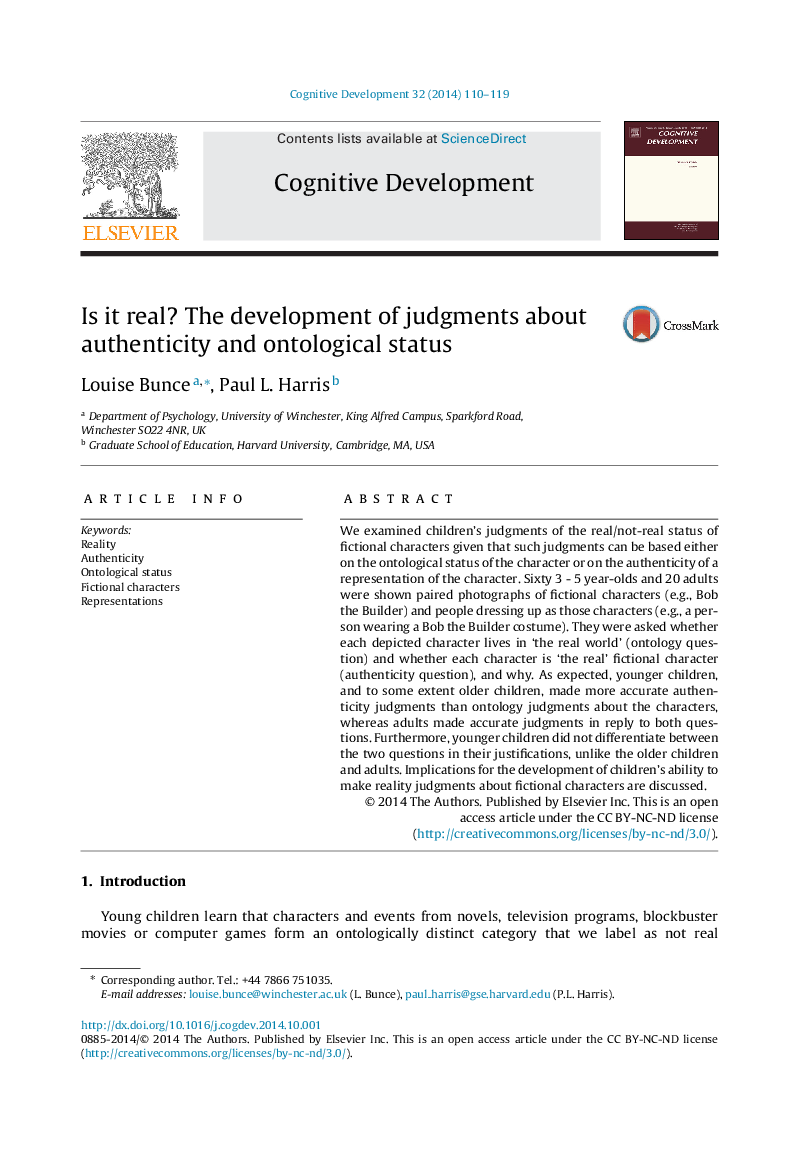| Article ID | Journal | Published Year | Pages | File Type |
|---|---|---|---|---|
| 7272517 | Cognitive Development | 2014 | 10 Pages |
Abstract
We examined children's judgments of the real/not-real status of fictional characters given that such judgments can be based either on the ontological status of the character or on the authenticity of a representation of the character. Sixty 3 - 5 year-olds and 20 adults were shown paired photographs of fictional characters (e.g., Bob the Builder) and people dressing up as those characters (e.g., a person wearing a Bob the Builder costume). They were asked whether each depicted character lives in 'the real world' (ontology question) and whether each character is 'the real' fictional character (authenticity question), and why. As expected, younger children, and to some extent older children, made more accurate authenticity judgments than ontology judgments about the characters, whereas adults made accurate judgments in reply to both questions. Furthermore, younger children did not differentiate between the two questions in their justifications, unlike the older children and adults. Implications for the development of children's ability to make reality judgments about fictional characters are discussed.
Keywords
Related Topics
Social Sciences and Humanities
Psychology
Developmental and Educational Psychology
Authors
Louise Bunce, Paul L. Harris,
